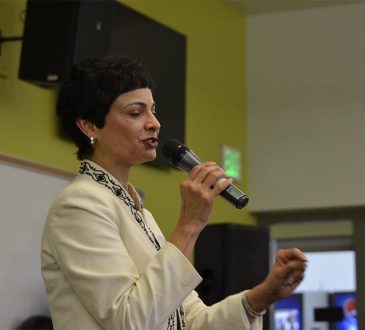Corporate Structure and Financial Performance: How Are They Linked?

Corporate structure has been defined as a pattern by which organizations can divide their activities and tasks as well as control them to achieve higher degrees of coordination. Corporate structure, therefore, refers to the bureaucratic division of labor accompanied by control and coordination between different tasks in order to develop communication within organizations.
Corporate structure can be reshaped by executives when they develop knowledge sharing and inspire employees to create new ideas for a better environment among business-units and departments. Informal structure can facilitate new idea generation to build a more innovative climate within organizations. Executives can implement organizational changes that develop better collaboration among subordinates and managers.
Centralized versus decentralized decision making is also a topic that executives must deal with. More emphasis on formalized and mechanistic structures can negatively impact the executive’s ability to exert such changes. On the contrary, a more decentralized and flexible structure may improve departmental and managerial interactions. The mechanical or centralization at the commanding level of leadership impairs the opportunity to develop relationships among managers, business units, and departments.
Executives can reshape corporate structure to be more effective when the command center of organizations can disseminate information in a decentralized and organic way as opposed to the mechanical and centralized command center.
Decentralized structures shift the power of decision-making to the lower levels and subsequently inspire organizational members to create new ideas and even implement them while centralized structures may negatively impact interdepartmental communications and inhibit knowledge exchange. Recent research in this area affirms that the there is a negative impact of centralization on various knowledge management processes such as knowledge acquiring, creating, and sharing among both managers and departmental units.
On the contrary, a more decentralized and flexible structure may enable executives in improving departmental and managerial interactions that can lead to identify best opportunities for investment that potentially leads to improve knowledge utilization process for companies. Ergo, executives can positively contribute to organizational knowledge management through building more decentralized structures within organizations.
Furthermore, knowledge management is a significant indicator of improving financial performance. Knowledge management can, in fact, improve financial performance through increasing customer satisfaction, learning opportunities and innovation. Therefore, if corporate structure is not completely in favor of supporting knowledge management, executives cannot effectively manage organizational knowledge to improve financial performance and organizations may become obsolete or taken over.
It is also evident that networking with external business partners, as a function of knowledge management, increases financial performance, thereby providing directions for executives to develop a more effective vision incorporating various concerns and values of external business partners. Networking with other companies also contributes to the effectiveness of learning, which in turn enables executives by empowering human resource and creating new knowledge and solutions. Accordingly, flexible structures can indirectly affect financial performance through propelling knowledge management activities that can play a crucial role in enhancing the quality of products and services.
In conclusion, financial performance can be, therefore, enhanced when executives reshape corporate structure to develop a more flexible corporate structure that provides open access to knowledge and information. I simply extended the current literature by showing how executives can contribute to organizational outcomes by reshaping corporate structure to propel knowledge management processes within companies.
Written by Mostafa Sayyadi.
Have you read?
For those who are planning their next business trip, read on for our list of the world’s best cities for bleisure travelers. As you continue to travel, we continue to listen: Here are the best hotels for business travelers to stay in Amman, Maldives, Malta, Playa del Carmen, Mexico City, and Tulum.
Add CEOWORLD magazine to your Google News feed.
Follow CEOWORLD magazine headlines on: Google News, LinkedIn, Twitter, and Facebook.
This report/news/ranking/statistics has been prepared only for general guidance on matters of interest and does not constitute professional advice. You should not act upon the information contained in this publication without obtaining specific professional advice. No representation or warranty (express or implied) is given as to the accuracy or completeness of the information contained in this publication, and, to the extent permitted by law, CEOWORLD magazine does not accept or assume any liability, responsibility or duty of care for any consequences of you or anyone else acting, or refraining to act, in reliance on the information contained in this publication or for any decision based on it.
Copyright 2024 The CEOWORLD magazine. All rights reserved. This material (and any extract from it) must not be copied, redistributed or placed on any website, without CEOWORLD magazine' prior written consent. For media queries, please contact: info@ceoworld.biz
SUBSCRIBE NEWSLETTER








